 Greg Cravens
Greg Cravens
If 2020 has proven anything, it’s that we need to come together to support our community — the health, happiness, and longevity of our fellow Memphians count on it now more than ever. While we may not be able to gather with friends and family for gift exchanges like we have in the past, we can still lift their spirits with thoughtful presents that help our local restaurants, retail outlets, and entrepreneurs keep doing what they do. Think local this season!
A Box of Magic
Have a giftee in your life who seeks to better understand their own power, to look within and outside for growth and restoration? Give them a box of magic, or as Sami Harvey, owner of Foxglove Pharm, calls it: a Coven Box.
“I’ve always been amazed by Mother Nature’s ability to heal, and I love finding new ways to use her ingredients to solve my problems,” Harvey says. “I started Foxglove Pharm in 2017 because I wanted to share some of those solutions with my community.”
Each subscription box ($40/month) includes a rotating variety of handcrafted herbal “remeteas” (About Last Night: Hangover Tea, Out of the Blue: Third Eye Tea, and others), scented oils, Resting Witch Face skincare products, rituals, and more special items that “honor the moon, the current astrological phase, and a featured plant.”
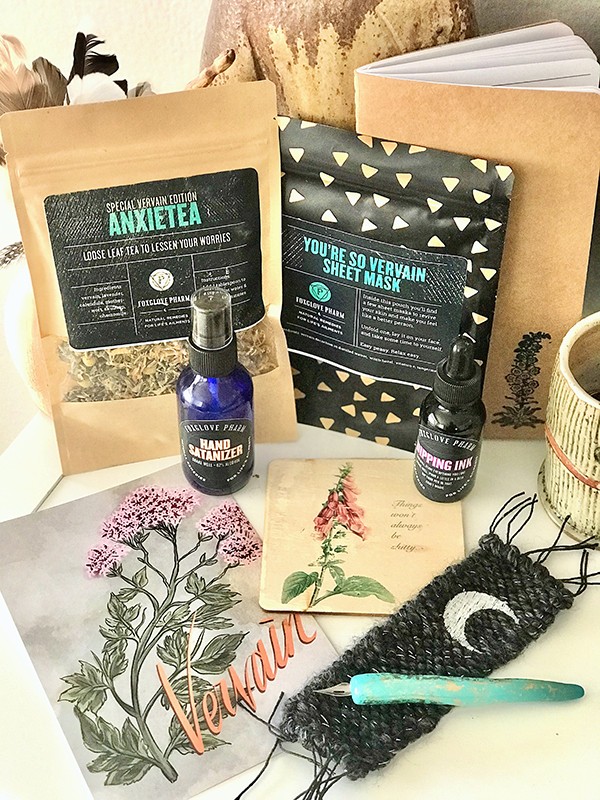 Sami Harvey
Sami Harvey
Each month, she partners with another local maker or small business to spotlight their wares. For her Foxglove offerings, Harvey is “the only witch in the kitchen,” so the products are small-batch and made with “ethically sourced, organic, sustainable ingredients.”
Regarding the rituals included in a box (or separately on the website), Harvey says, “These aren’t like supernatural spells that will destroy all your enemies and turn Michelle Obama into your BFF. But they’re ways to meditate and channel your energy into manifesting a better reality for yourself. The real magic ingredient is you and your intention.”
Visit foxglovepharm.com to order a Coven Box and shop products. — Shara Clark
Feed an Artist
The old cliché about “starving artists” has seldom been more true. Buying art is often the last thing folks are thinking about during tough times like these, but our Memphis painters and sculptors and photographers — and their galleries — have bills to pay, just like the rest of us. That’s why this might be a great year to put a new painting on your wall, or gift someone a work of art so they’ll be reminded of you every day.
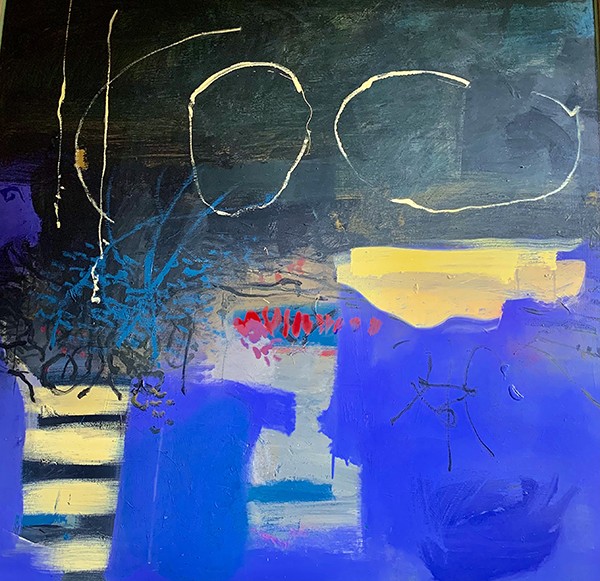 Courtesy Jay Etkin Gallery
Courtesy Jay Etkin Gallery
Untitled by John Ryan
There are many fine galleries in Memphis. Here are just a few: L Ross, David Lusk, Jay Etkin, Crosstown Arts, Orange Mound Gallery, Art Village, Cooper-Young Gallery, and B. Collective. Artists featured include Matthew Hasty, Jeanne Seagle, John Ryan, Mary Long, Roy Tamboli, Eunika Rogers, Cat Pena, Yancy Villa-Calvo, Hamlett Dobbins, Anne Siems, Tim Craddock, and many, many more. In addition, many galleries are featuring special holiday shows.
End what has been a nightmarish year on an upbeat note: Buy a piece of art. It’s good for your heart. — Bruce VanWyngarden
Let Them Eat Cake
I’d be happy to receive a Memphis Bourbon Caramel Cake from Sugar Avenue Bakery, either in or out of my stocking. This is the Sugar Avenue collaboration with Old Dominick Distillery.
Just listening to Sugar Avenue owner Ed Crenshaw describe the six-inch cake makes me crave a slice or three: “The cake is four layers. Each layer is literally soaked in a bourbon caramel sauce. And then our caramel icing, which we make from scratch.”
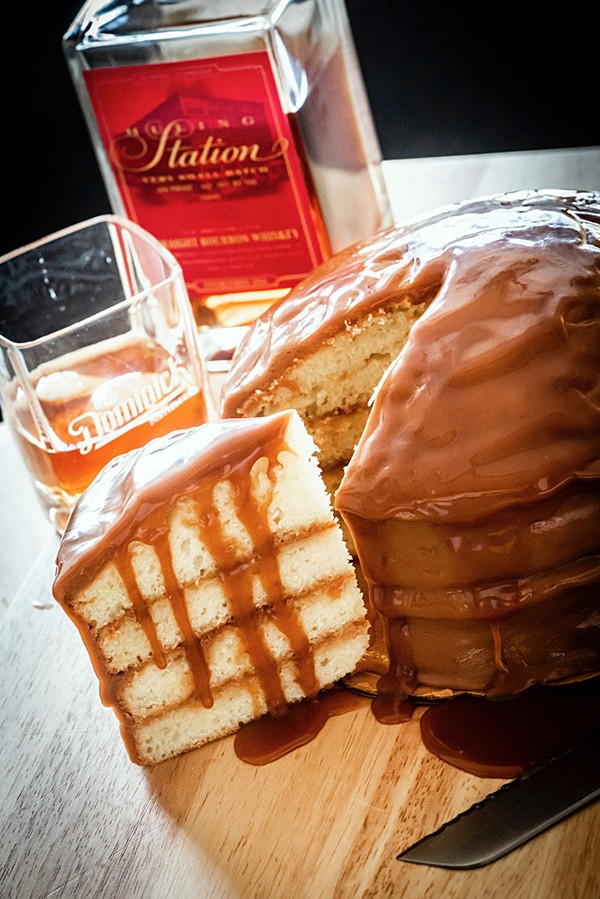 Courtesy Ben Fant
Courtesy Ben Fant
Sugar Avenue cake
Sugar Avenue worked with Old Dominick’s master distiller/senior vice president Alex Castle to come up with the perfect blend of cake and bourbon. Old Dominick’s Huling Station Straight Bourbon Whiskey was chosen for the cake, which has “a great hint of bourbon flavor,” Crenshaw says. “We add bourbon to the icing and ice the cake with it.”
To help you get even more into the holiday spirit, Sugar Avenue Bakery recently began adding two-ounce jars of extra caramel sauce with every bourbon-flavored cake.
Memphis Bourbon Caramel Cakes are $55 each, and they’re available at sugaravenue.com. — Michael Donahue
Accessorize in Style
When Memphians need to give the gift of stylish living, they turn to Cheryl Pesce, the jewelry and lifestyle store in Crosstown Concourse. The store takes its name from its owner, Cheryl Pesce, a jewelry maker, entrepreneur, and all-around style guru.
This month, Pesce opened a second store in the Laurelwood Shopping Center, giving Bluff City-area shoppers double the chances to find — and give — stylish accoutrements. “I’m banking on Memphis,” Pesce explains. And Memphis seems ready to support Pesce. “We had a grand open house, social distancing into the parking lot, and it went well.”
 Courtesy Cheryl Pesce
Courtesy Cheryl Pesce
Handmade jewelry from Cheryl Pesce
The store opening story is just the tip of the breaking-news iceberg, though. Pesce tells me excitedly that she’s been in touch with fashion designer Patrick Henry, aka Richfresh, about his newly designed Henry Mask. “I spoke with him today and — drumroll — we will now be carrying his masks in my Laurelwood store.”
But wait! That’s still not all. The ink is still fresh on a deal for Pesce to carry Germantown-produced Leovard skincare products. “I will be his only brick-and-mortar store in the country,” Pesce says. “So there are a lot of cool things happening, most of them local.”
In the smaller store in Crosstown, Pesce sells hand-sewn baby items, masks, Christmas ornaments, and anything with the Crosstown logo — she’s the official source for Crosstown-brand goods. Laurelwood is larger and a little more deluxe. “One of the focuses for that store is local and regional artisans,” Pesce says. She carries Mo’s Bows, Paul Edelstein paintings, and, of course, hand-crafted jewelry. “That’s really my wheelhouse.
“My studio is at Laurelwood,” Pesce says, “so not only is it made in Memphis, made by me, but it’s all under one roof now. The store, the studio. You can literally come pick out your own pearls — ‘I want this pearl on that earring’ — and then I craft it for you right there.”
Cheryl Pesce is located at 1350 Concourse Avenue, Suite 125, and at 374 Grove Park Road South, Suite 104. Find out more at (901) 308-6017 or at cherylpesce.com. — Jesse Davis
Good Reads
There’s something that comes from holding the edges of a book and being taken to a distant land or wondrous world. Whether it’s due to happenstance or the crazy and confusing world in which we find ourselves now, I have been reading more and more as the months drag on. To fuel my ever-growing hunger for words and phrases completed on the page, Novel has been my go-to place.
Novel is proof that when you are doing something you love, the results will follow. The bookstore, founded in 2017, is the go-to for other local book enthusiasts, too — and with good reason. Their staff will go to the moon and back to help you find the book that fits you just right, and if you’re looking for something specific, chances are they will be just as excited about it as you are.
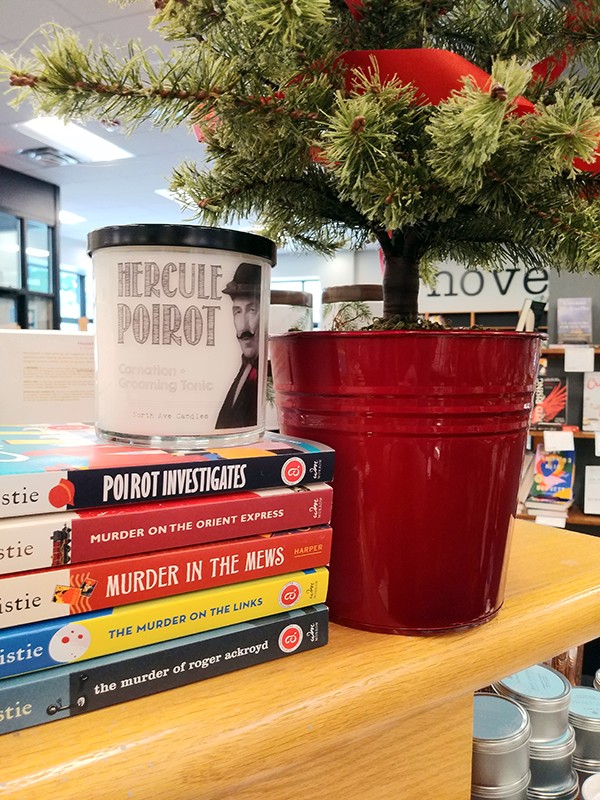 Matthew J. Harris
Matthew J. Harris
of what gift to give this season.
Many of their aisles have felt like a second home to me the past few months. And with books in every genre, it is often easier to ask them what they don’t have, rather than what they do. Personally, I love their new-this-year home delivery option, which offers a safe way to give the gift of literature this holiday season. — Matthew J. Harris
Hit the Boards
This year has given us plenty of time to learn new skills. And what better way to get your mind pumping in both a constructive and competitive fashion than with a game of chess?
The Memphis Chess Club recently opened its new café/headquarters Downtown at 195 Madison Avenue, and the three levels of annual memberships make for a great gift, whether someone is looking to seriously pursue an interest in the game or just learn a few tips and tricks.
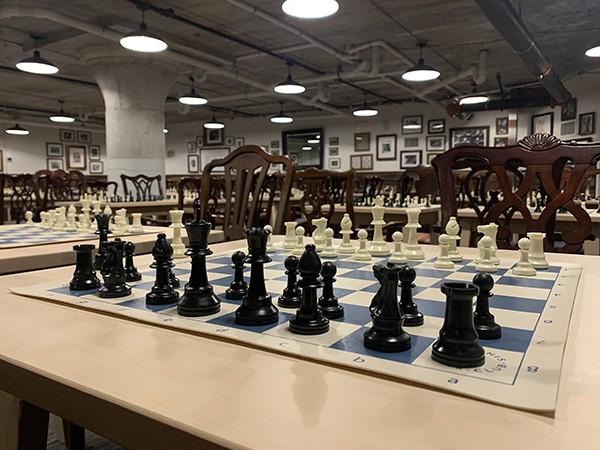 Samuel X. Cicci
Samuel X. Cicci
A Memphis Chess Club membership isn’t as risky a move as the Queen’s Gambit.
The social membership ($50) allows members to play chess in the café area at any time, with tables, pieces, and clocks all provided. The full membership ($100), meanwhile, affords all of the social perks but provides unlimited and free access to all classes and tournaments, which are held at the club weekly. It also offers discounts on merchandise, and members are able to check out materials from the club’s chess library, which contains old magazines and strategy books.
For whole families looking to kickstart an interest in the game? The family membership ($150) contains all full membership benefits and includes two adults and all the children in a household.
And, hey, if chess isn’t your thing, the spacious café is a great space to just hang out or study while sipping on some brewed-in-house coffee or munching on one of chef Grier Cosby’s specialty pizzas.
Visit memphischessclub.com/join for more information. — Samuel X. Cicci
The Gift of Grub
Food is fun and helps define Memphis culture. Those who make that food and fun are in trouble.
Restaurants have maybe suffered more than any small business during this pandemic. Restrictions on them have come and gone and may come again soon. Memphis restaurateurs have shown amazing resilience in these ups and downs. They’ve shifted business models, adapted to the latest health directives, and adjusted staff levels (laying off workers and hiring them back) to match it all.
 Memphis Restaurant Association/Facebook
Memphis Restaurant Association/Facebook
Support local restaurants — so they can stick around.
However, we forever lost some Memphis favorites, like Lucky Cat and Grove Grill. The National Restaurant Association said nearly 100,000 restaurants across the country closed either permanently or for the long-term six months into the pandemic. Nearly 3 million employees have lost their jobs. Help restaurants out and have food fun, too. This holiday season, buy gift cards from our local restaurants.
At the pandemic’s beginning in March, we told you about a national push to buy “dining bonds” or “restaurant bonds.” Many Memphis restaurants jumped in — many selling gift cards at deep discounts. For restaurants, gift cards are quick infusions of cash, helpful in tough times.
So instead of that scarf you’re kind of on the fence about, spend the same amount on a restaurant they love. It’ll be unexpected and, yes, come with some delayed gratification — delicious delayed gratification. Present it not as a gift card but as that dish they love from that place they love.
Sing it with me: “Everybody knows, a burger and some mistletoe help to make the season bright. Memphis foodies, with their eyes all aglow, will find it hard to sleep tonight.”
Gift cards are available at almost every restaurant and for almost any amount. Check websites and socials for details. — Toby Sells
Music to Their Ears
Remember when giving music was a thing? Physical things like LPs, CDs, and cassettes could be wrapped. But now that everything’s ethereal, there’s still a way to give the gift that keeps on giving: Patreon. Musicians are embracing this platform more and more, and it’s working for them. A subscription to their accounts may just be the perfect gift for the superfan in your life who already has everything.
Mike Doughty (Soul Coughing, Ghost of Vroom) relies on his Patreon subscribers for both income and inspiration. As he told the Detroit Metro Times, “Doing a song a week is amazing, and that is really what, if I had my druthers, I’d do for the rest of my life.” Patrons can subscribe at different levels, each with premiums like CDs and T-shirts, but everyone paying at least $5 a month can access Doughty’s song-a-week and more.
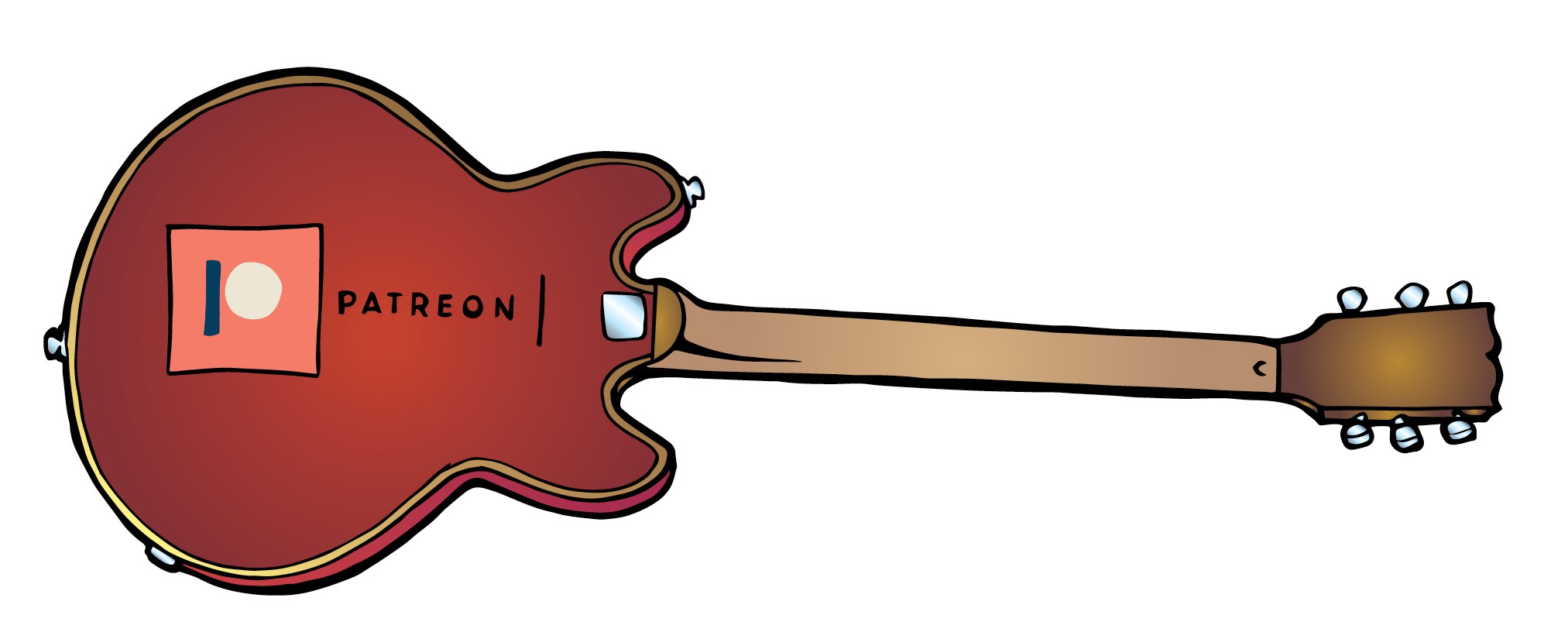 Greg Cravens
Greg Cravens
Other Memphis-affiliated singer/songwriters like Eric Lewis, J.D. Reager, and (coming in December) Marcella and Her Lovers also have accounts. And last month, label and music retailer Goner Records began offering Patreon subscriptions that include access to the Goner archives and exclusive music and videos.
Patreon’s site notes that “there isn’t currently a way to gift patronage,” but if you get creative, you can search for an artist on patreon.com and buy a subscription in a friend’s or family member’s name — and they can thank you all through the year. — Alex Greene
Support Arts and Culture
“A plague on both your houses!” cried the dying Mercutio in Romeo and Juliet, and it seems the COVID-19 pandemic took that sentiment to heart, emptying out our theaters and concert halls and thinning out attendance at museums. But still they persisted. The organizations behind the arts we love are still at work online, virtually, distancing, and striving to keep the arts alive — especially in programs aimed at young people.
You can help the old-fashioned way by getting season subscriptions and memberships for whenever the lights come back on — and they could use that support right now. Or make a simple donation. Help keep Memphis culture alive by giving gifts on behalf of the following, but don’t be limited by this partial list — if you have other favorites, give them a cup o’ kindness as well.
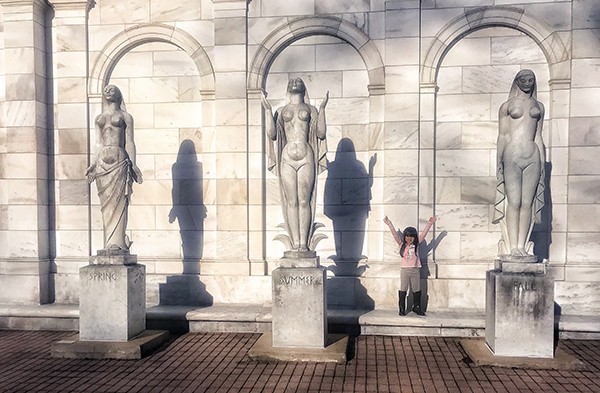 Jon W. Sparks
Jon W. Sparks
Spring, Summer, Fall at the Brooks Museum by Wheeler Williams
Performing arts organizations:
• Playhouse on the Square (playhouseonthesquare.org)
• Theatre Memphis (theatrememphis.org)
• Opera Memphis (operamemphis.org)
• Ballet Memphis (balletmemphis.org)
• New Ballet Ensemble (newballet.org)
• Cazateatro (cazateatro.org)
• New Moon Theatre (newmoontheatre.org)
• Hattiloo Theatre (hattiloo.org)
• Tennessee Shakespeare Company (tnshakespeare.org)
• Memphis Black Arts Alliance (memphisblackarts.org)
• Emerald Theatre Company (etcmemphistheater.com)
Museums and galleries:
• Memphis Brooks Museum of Art (brooksmuseum.org)
• Dixon Gallery and Gardens (dixon.org)
• National Civil Rights Museum (civilrightsmuseum.org)
• Metal Museum (metalmuseum.org)
• Stax Museum of American Soul Music (staxmuseum.com)
• Pink Palace Museum (memphismuseums.org)
• Children’s Museum of Memphis (cmom.com)
• Fire Museum of Memphis (firemuseum.org) — Jon W. Sparks
Basket or Box It for a Gift That Rocks It
Need something sweet for your honey this holiday season? Thistle & Bee has the gift that gives twice. A relaxing gift box contains raw Memphis honey, a milk and honey soap bar, and a pure beeswax candle ($20). Every item is handcrafted and directly supports women survivors to thrive through a journey of healing and hope.
Social enterprise director at Thistle & Bee, Ali Pap Chesney, drops a stinger: “We partner with other businesses, too. Feast & Graze uses our honey.”
 Feast & Graze/Facebook
Feast & Graze/Facebook
Feast & Graze
The cheese and charcuterie company Feast & Grace is co-owned by Cristina McCarter, who happens to co-own City Tasting Box. Boxes are filled with goodies promoting local Black-owned businesses like Pop’s Kernel and The Waffle Iron. An exclusive limited-quantity holiday gift box, Sugar and Spice, just rolled out for the season in two sizes — regular ($74.99) and ultimate ($124.99).
Memphis Gift Basket is owned by Jesse James, who says he is rolling out a new logo this week. Along with the new logo are new products for baskets ($55-$100) that focus on diversity by including more women- and minority-owned businesses, in addition to local items with iconic names like The Rendezvous and Memphis magazine. Guess what else you might find in a Memphis Gift Basket? Thistle & Bee honey.
Now that we’ve come full circle, check out these gift box and basket businesses, as well as partnering companies, for errbody on your holiday list — including that corporate gift list.
Visit thistleandbee.org, citytastingbox.com (use code SHIP100 for free shipping on orders over $100), and memphisgiftbasket.com for more. — Julie Ray
Lights, Camera, Action
A lot of businesses have been hard-hit during the pandemic, and movie theaters have been near the top of the list. With social distancing-limited theater capacity and Hollywood studios delaying major releases into next year in the hopes a vaccine will rekindle attendance, theater chains like Memphis-based Malco have been in dire straits. The exception has been drive-in theaters, like the Malco Summer Drive-In, which have seen a renaissance in 2020.
If you want to support this local institution and give a treat to the movie-lover in your life, you can buy them a Malco gift card. Available in any denomination from $10 to $500, the gift cards can be used for movie tickets and concessions for any film now or in the future. You can also enroll in the Malco Marquee Rewards program, which allows frequent moviegoers to earn points toward free tickets and concessions.
 Greg Cravens
Greg Cravens
Malco has taken extraordinary steps to ensure the safety of its patrons, including mandatory masks, improved air filters, and non-contact payment options. And if you’re not comfortable sharing a theater with strangers right now, there’s a great option: The Malco Select program allows you to rent an entire theater for a screening of any film on the marquee — and that includes screenings in the massive IMAX theaters at the Paradiso. Prices start at $100, which works out pretty well if you want to watch Wonder Woman 1984 with your pod this holiday season. And if the person you’re buying for is a gamer, Malco has a brand-new option. With Malco Select Gaming, you can bring your system to the theater and play Call of Duty or The Last of Us on the biggest possible screen. — Chris McCoy
 Carla McDonald
Carla McDonald  Jon W. Sparks
Jon W. Sparks 
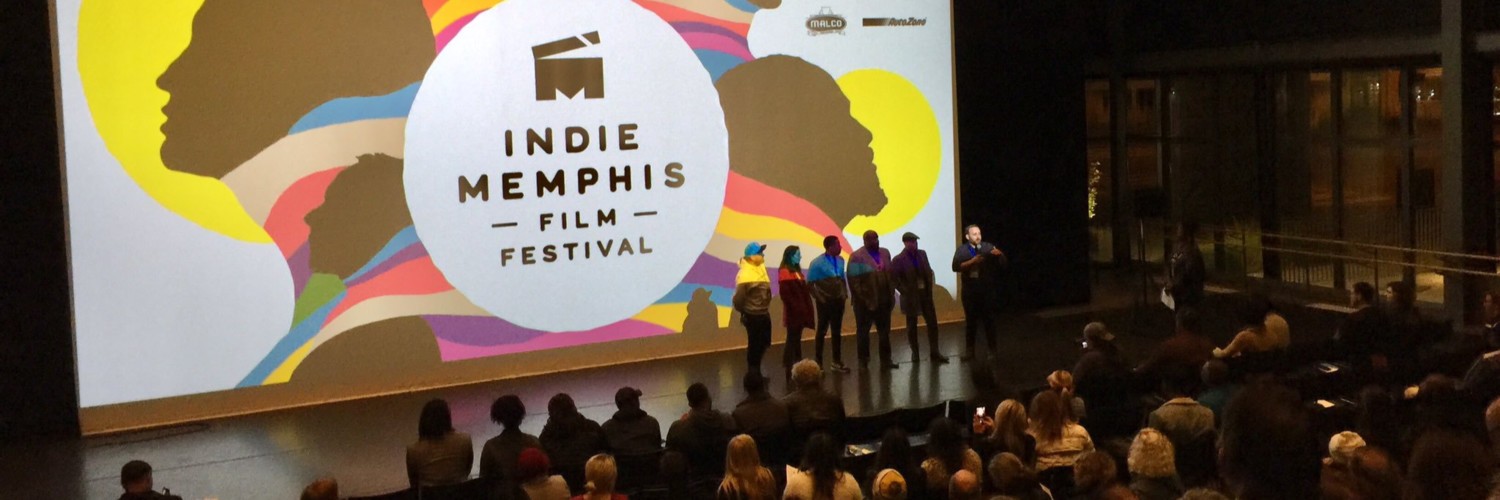


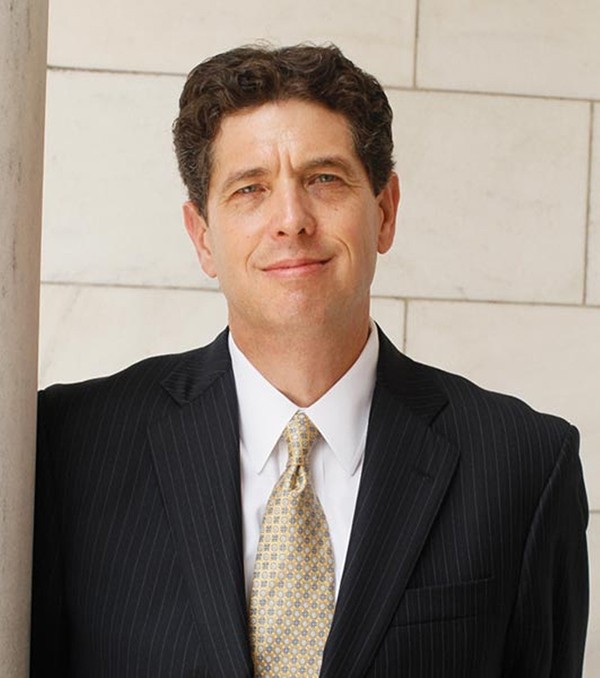
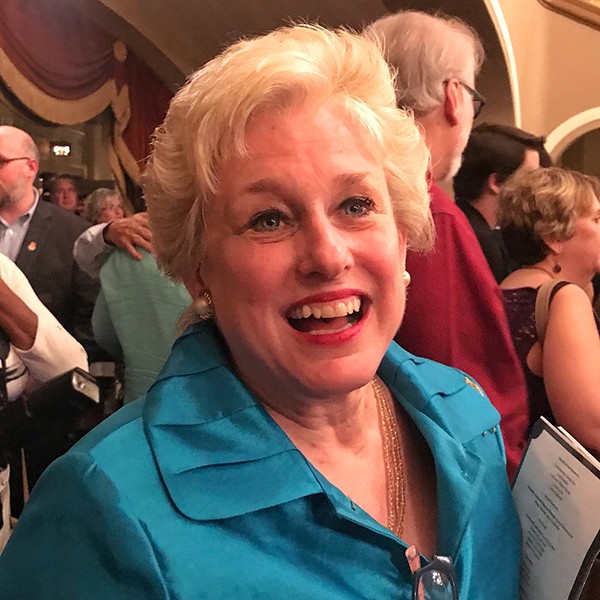
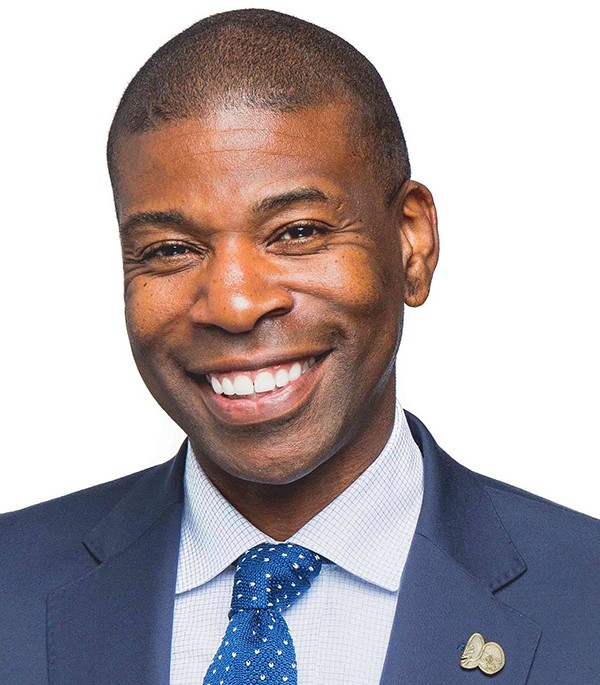
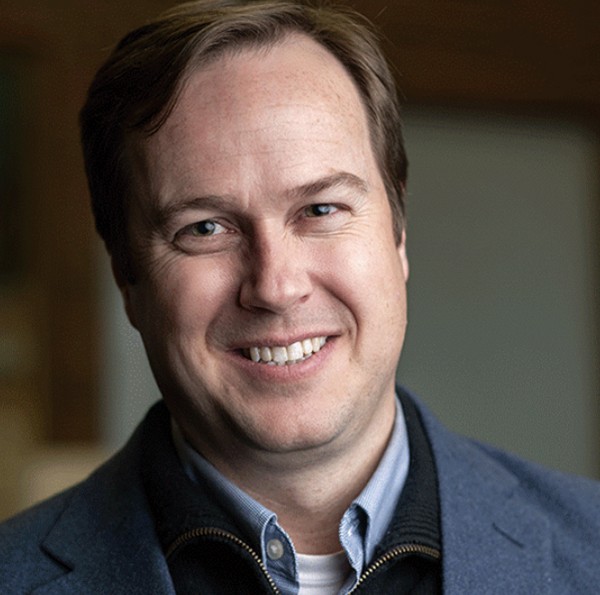
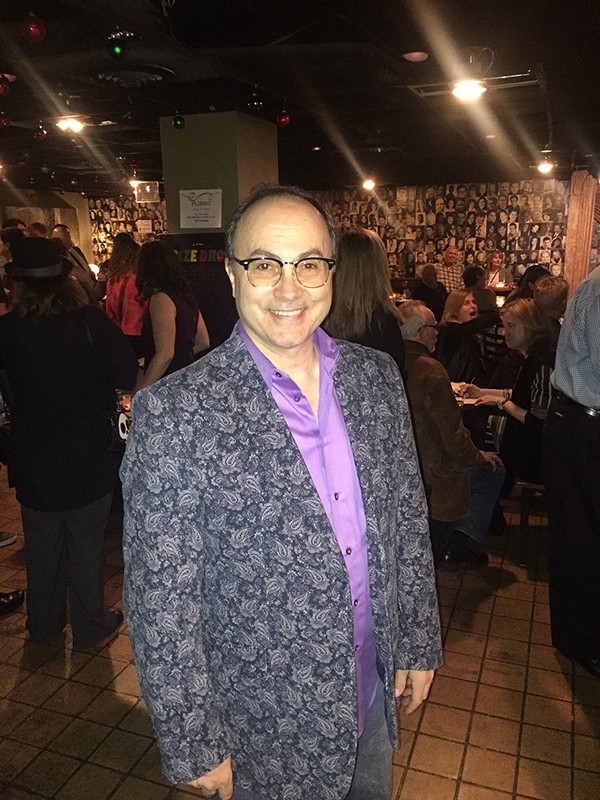
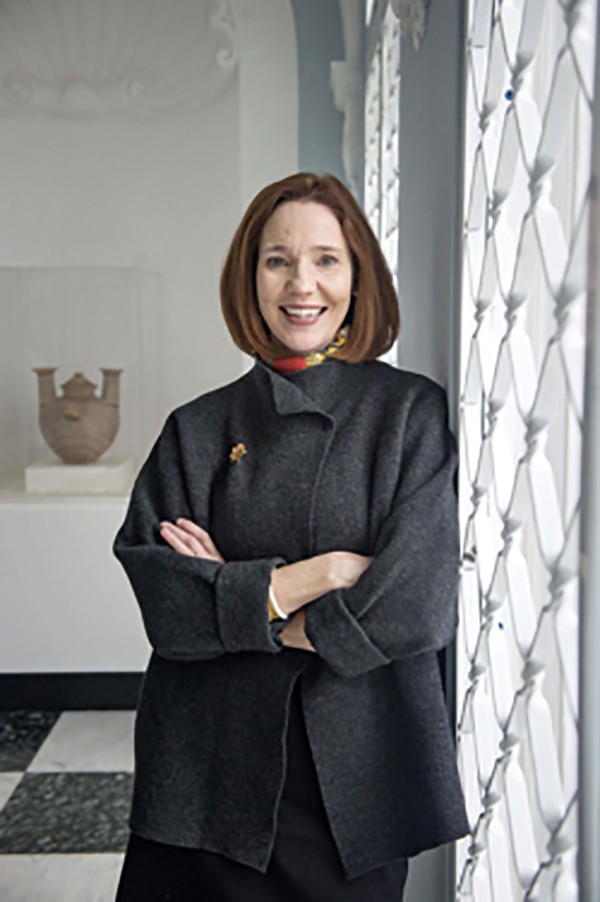
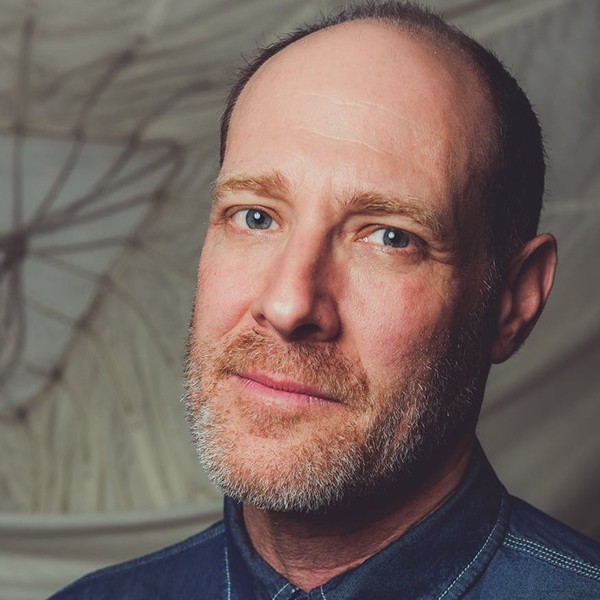

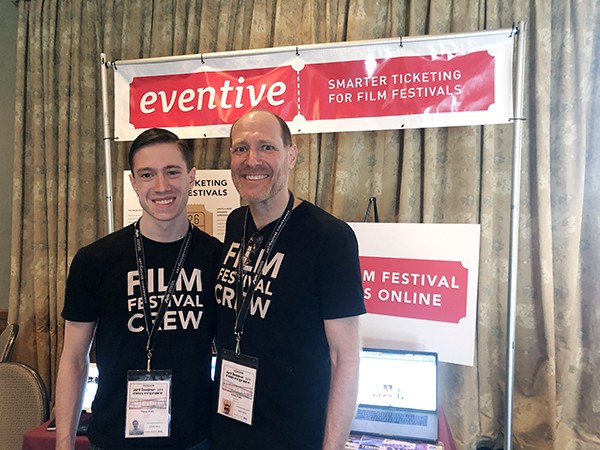


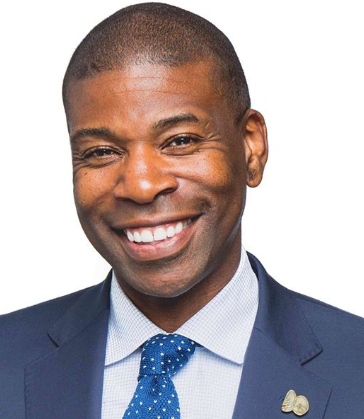 Ekundayo Bandele
Ekundayo Bandele 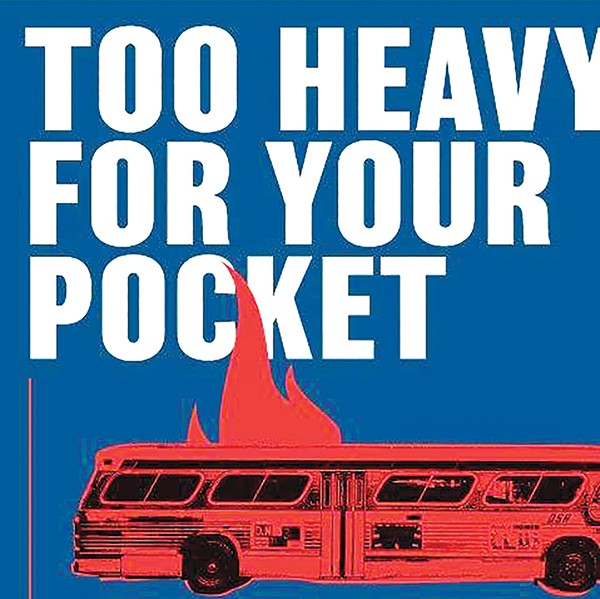
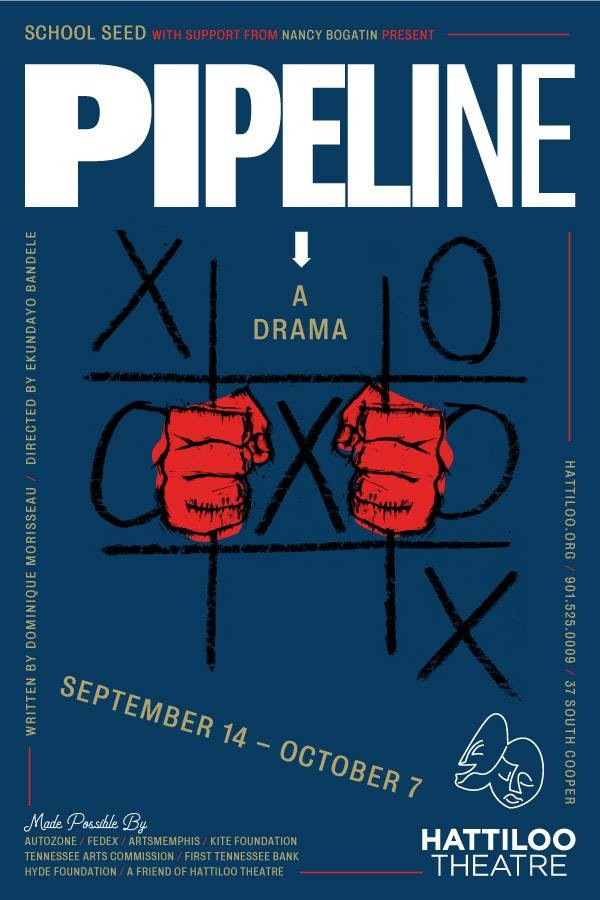
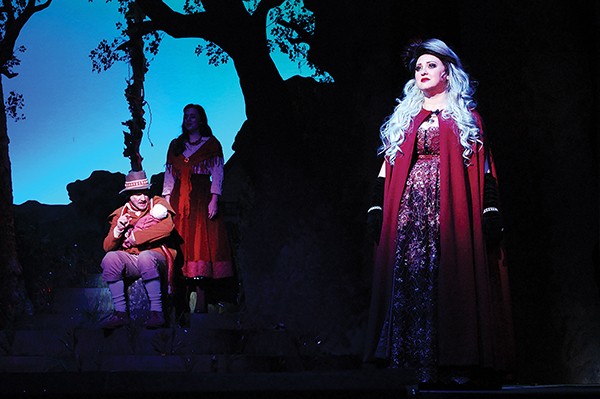 Jack Yates
Jack Yates